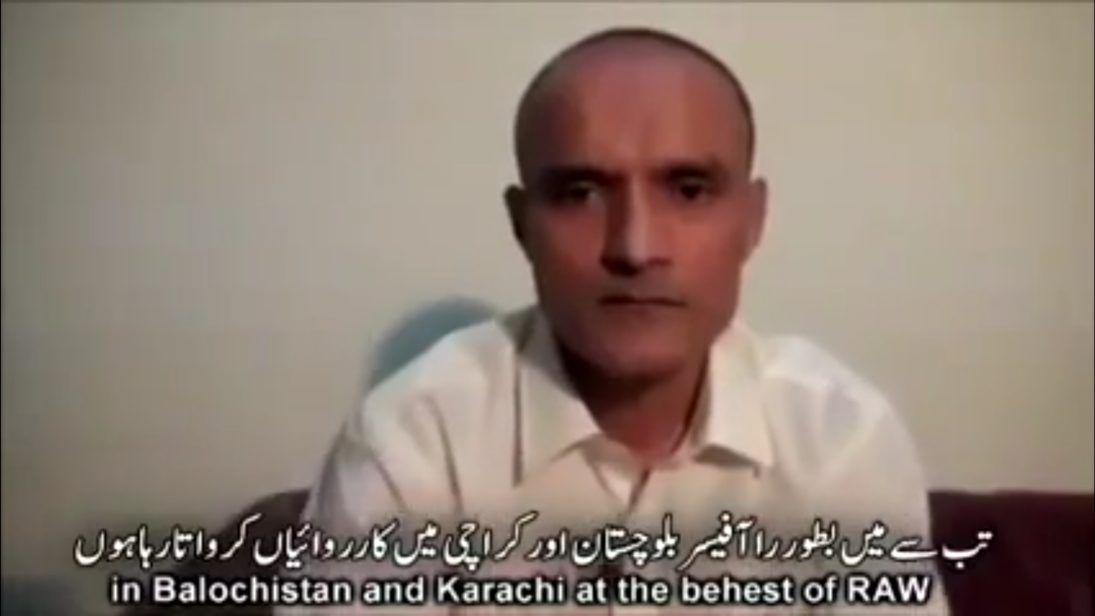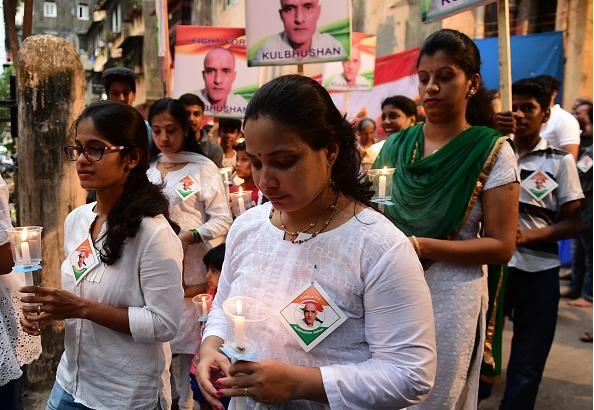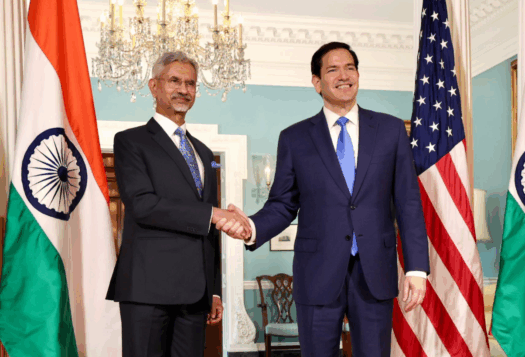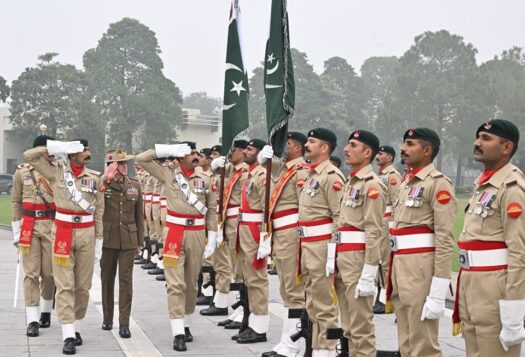
The uproar after the alleged ill-treatment of Kulbhushan Jadhav’s wife and mother after their meeting at the Foreign Office in Islamabad hadn’t yet subsided when Indian journalist Praveen Swami published a hard-hitting investigative piece titled “India’s secret war” earlier this month. Swami claimed that Jadhav was an active Indian Navy officer at the time he was nabbed by Pakistan’s Inter-Services Intelligence (ISI) in March 2016 on suspicion of spying, which was a curious setting aside of the protocol of disguising one’s true identity in espionage.
Espionage is not only the world’s second oldest profession but also one of the most effective ways to hamstring the enemy from within. India and Pakistan, with their long history of contention, both utilize this tool in covert operations against one another. Yet each time such an instance makes headlines, there is an immediate and vociferous reaction from the government and media in both countries. With Pakistan’s ISI and the Indian Research and Analysis Wing (RAW) certain to remain active and nationalistic tendencies on the rise in both countries, there is a real possibility that another episode like the Jadhav affair might escalate tensions between the two in the future. Since the status quo of engaging in covert intelligence-gathering activities is likely to continue even though it heightens the already-tense state of bilateral relations between these nuclear-armed powers, New Delhi and Islamabad should agree to institutionalize protocols and mechanisms to prevent the politicization of covert operations in the future. This will ultimately help India and Pakistan generate goodwill between themselves and among their people.
Playing the Blame Game
Considering the sensitivities associated with covert operations, even if Jadhav were working for RAW at the time he was caught, the Indian government would almost certainly deny it. On the other hand, if he were, in fact, running his business without any links with Indian intelligence, the Pakistani authorities would continue to brand him an enemy agent. That is exactly how the blame game is played. However, the details of the Jadhav episode, including his operational activities and how the ISI received the tip-off that eventually led to his arrest, were brought into the spotlight by increased media coverage, which generated ill will among the populace for their neighboring country. Since Jadhav’s arrest, the media on both sides of the border have, yet again, gone into overdrive. As such, political squabbles over spy operations are essentially done to please domestic audiences.
In fact, this is not the first time such an operational activity has been unearthed. Earlier this month, an Indian Air Force (IAF) Group Captain was arrested by the IAF on suspicion of sharing secret information with his “handlers” in the Pakistani intelligence. In 2010, Madhuri Gupta, an Indian diplomat posted in Islamabad, was accused of being a Pakistani agent. Perhaps the most significant of cover identities was Ravindra Kaushik, known in defense circles as The Black Tiger. As a RAW agent, he arrived in Pakistan in 1975, where he assumed the identity of Nabi Ahmed Shakir, managed to sneak into the Pakistan Army, and rose to the rank of major before he was found out. Even India’s current National Security Advisor, Ajit Kumar Doval, lived in Lahore as an Indian spy for several years.
While India has instigated intelligence-gathering operations against Pakistan, it has also been at the receiving end of similar operations since the establishment of the ISI in 1948. Sajeed Muneer, a Pakistani citizen, was caught in 2004 on suspicion of spying on Indian Army bases in Bhopal. In 2016, Indian intelligence agencies arrested Nandlal Maharaj, accused of being a Pakistani Hindu spy, from Rajasthan. Maharaj was reported to have been carrying with himself a diary that had information including financial transactions made for him by his “handlers” across the border. Additionally, retired Lt. Colonel Muhammad Habib Zahir, who was reportedly on the team that caught Jadhav, is suspected of being under Indian intelligence custody after he went missing from Lumbini near Nepal’s border with India in April 2017. For India, Habib will remain the kidnapper who caught the “innocent” Jadhav. For Pakistan, he will always be perceived as a former serviceman who was apprehended by the Indian intelligence agencies to avenge Jadhav’s arrest.

The Inevitability of Intelligence Gathering
These recurring intelligence operations from both sides highlight that the Jadhav episode is not the first of its kind and it will certainly not be the last. Despite Jadhav’s arrest, the intelligence agencies of Pakistan and India are not likely to halt ongoing covert operations or avoid initiating new operations that serve their national security interests. Allen Welsh Dulles, the first civilian director of the Central Intelligence Agency (CIA), once wrote on the need for an intelligence gathering agency: “The threat is (rather) that we will not be adequately informed of the perils which face us and that we will fail to act in time.” Given the history of antipathy between India and Pakistan and the ongoing dispute in Kashmir, both sides will continue to view intelligence gathering operations as a necessary instrument for monitoring potential threats and adequately preparing for whatever danger lies ahead.
Given the inevitability of covert intelligence gathering operations, both sides should agree to prevent the politicization of future instances of spying by RAW and ISI. To this end, India and Pakistan could agree to institute a comprehensive protocol for handling an intelligence agent from the other country. Furthermore, the establishment of a joint committee that oversees and suggests rulings on spy missions may also serve the interests of both India and Pakistan. With senior military and government officials from both sides comprising the committee, this would ensure that covert operations do not result in any escalation between India and Pakistan. Another step India and Pakistan could take might be to sign a Memorandum of Understanding (MOU) in which both sides agree to maintain secrecy on the operations and agents that come to the attention of the intelligence and national security apparatus of the other side. This may imply opting to communicate quietly through back channels rather than express outrage in public statements during a major crisis like the Jadhav episode. Taken together, these measures could help avoid politicizing future instances of spying in India and Pakistan, of which we can be sure there will be more.
***
Click here to view this article in Urdu
Image 1: Dawn News (screen grab)
Image 2: AFP via Getty Images


